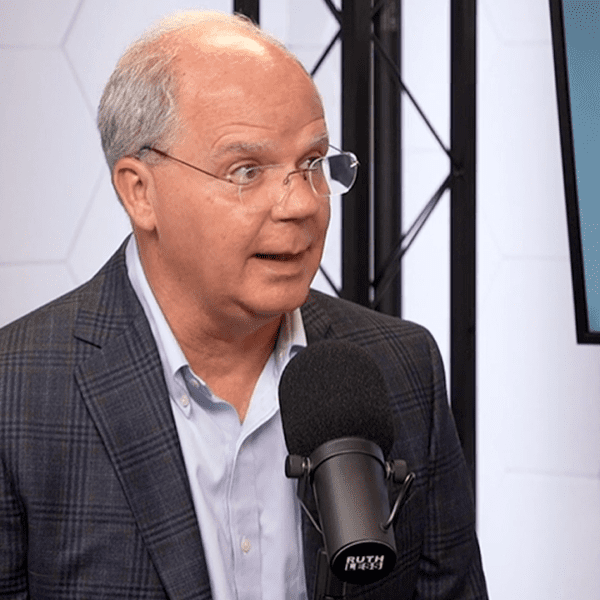
As head of Western U.S. operations for IDA Ireland, my job is to show American companies why European expansion makes strategic sense. Lately, that conversation has shifted. America’s frequent policy changes have prompted many executives to reconsider their expansion strategies, with more leaders looking overseas for growth opportunities. Ireland saw 179 foreign investment approvals in the first half of 2025, up 37% year-over-year.
Over two decades of advising Fortune 500 companies and high-growth startups, I’ve observed executives increasingly prioritize regulatory predictability when planning international expansion. They’re evaluating where they can execute multi-year AI hiring plans, maintain consistent research funding, and complete renewable energy programs. Long-term regulatory stability has become a more prominent consideration in location decisions. Here’s what’s driving these conversations.
The Global Competition for AI Talent Heats Up
The AI boom has sparked an expensive talent race in Silicon Valley, with tech giants offering massive compensation packages to attract a limited pool of specialized engineers. This makes it difficult for mid-sized companies and well-funded startups to compete. Meanwhile, the new $100,000 fee imposed on companies for H-1B visa applicants is making top international talent rethink U.S. relocation, with job offers tied to international offices becoming more attractive.
In response, companies at the forefront of AI development are diversifying their technical operations globally. Microsoft committed $30 billion to its UK operations and AI infrastructure through 2028. Google announced a €5 billion investment in Belgium‘s AI and cloud infrastructure, creating 300 jobs. In the last six months, major players including Workday, IBM, Equifax, OpenAI, and Anthropic have expanded or established AI operations in European cities.
Companies are also acquiring European AI talent through strategic deals. Anthropic brought on the team from U.K.-based Humanloop, Workday acquired Swedish firm Sana for $1.1 billion, and U.S.-based customer service giant NiCE acquired German startup Cognigy for $955 million to support its agentic AI efforts. These talent acquisitions come with access to deeper engineering pools and immigration systems with clearer pathways.
When Certainty Becomes the Competitive Edge
Predictability matters most when domestic policy decisions can eliminate billions in funding overnight. This dynamic is playing out dramatically in renewable energy. In the first half of 2025 alone, more than $22 billion in clean energy projects were cancelled or delayed, eliminating 16,500 jobs. Major cancellations included battery storage and electric vehicle factories in multiple states, while the Department of Energy terminated nearly $8 billion in funding for more than 200 projects.
European countries are moving in the opposite direction, pairing clear policy frameworks with multi-decade commitments. Germany’s Energiewende policy drove €32 billion in renewable energy investment in 2024, achieving 59% renewable electricity generation. Spain added a record 7.3 GW of solar and wind capacity in 2024, with solar becoming the country’s top power source at 25.1% of electricity generation. Ireland is already generating 35% of its electricity from wind, with clear policy commitments to reach 80% renewable electricity by 2030.
This regulatory clarity extends beyond energy. The EU AI Act provides clear guardrails across member states, making it easier for companies to access the broader European market after establishing operations in one EU country. In financial services, the EU’s Markets in Crypto Assets Regulation (MiCA) provides certainty for digital asset companies navigating an uncertain U.S. regulatory landscape.
Of course, European operations require genuine operational adjustments. GDPR data localization mandates mean companies must redesign cloud infrastructure for regional compliance. French and German labor protections require different workforce planning than U.S. operations. But executives tell me they’d rather navigate complex rules with long-term clarity than risk losing billions to an abrupt policy reversal. For the C-suite, this is now simply a better return on compliance investment.
The R&D Advantage That Doesn’t Shift Over Time
Recent freezes on approximately $11 billion in federal research funding have created uncertainty for universities, research institutions and companies that rely on government-supported R&D. Dozens of universities have been affected, impacting research on treatments for cancer and diabetes, agricultural innovation, and emerging technologies.
European countries view this as an opportunity to attract research talent and position themselves as global innovation centers. France’s INRIA, the national research institute for computer science and AI, is actively working to attract foreign talent with government-funded research grants and partnerships with major U.S. companies including Microsoft, Nokia Bell Labs, and Airbus. Germany’s Fraunhofer-Gesellschaft operates 75 research institutes with nearly 32,000 employees and an annual budget of €3.6 billion, partnering extensively with U.S. companies on applied research. Several European countries like Estonia, the UK, and Ireland have introduced, simplified, or increased R&D tax incentives in recent years, with many now offering more generous and predictable support than the patchwork of U.S. federal and state programs. The theme is consistency. Companies can plan multi-year programs with confidence in sustained institutional partnerships and stable incentive structures. The executives I advise increasingly treat this funding continuity as a strategic asset.
Building Where the Ground Is Solid
The most successful U.S. companies are establishing EMEA headquarters from day one. They’re hiring AI teams in European tech hubs before they’ve filled their Silicon Valley offices. They’re locating R&D in cities with stable policy environments with the same urgency they once reserved for domestic expansion.
The evidence is clear: companies building international capabilities gain access to deeper talent pools, regulatory frameworks with multi-decade commitments, and R&D ecosystems backed by sustained government investment. When visa policies can change faster than hiring cycles and funding commitments can reverse without warning, geographic diversification has shifted from defensive hedging to competitive necessity.
The question facing executives has shifted from whether to expand internationally to how quickly they can establish these capabilities before their competitors do.
The opinions expressed in Fortune.com commentary pieces are solely the views of their authors and do not necessarily reflect the opinions and beliefs of Fortune.















